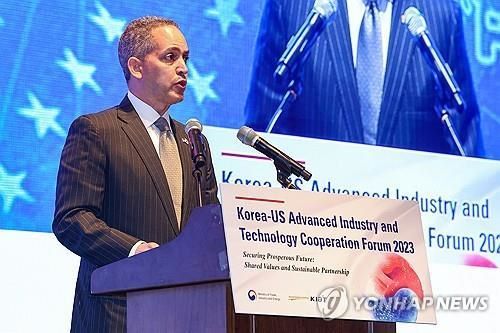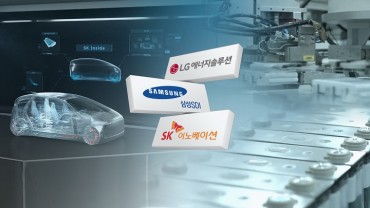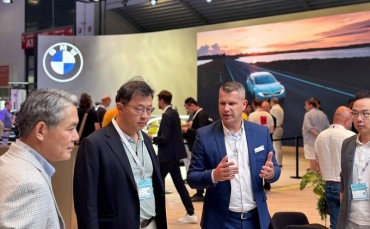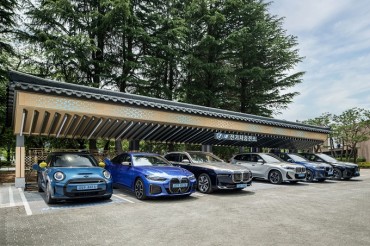
This file photo taken Sept. 21, 2023, shows Don Graves, U.S. deputy secretary of commerce, delivering a speech at the Korea-US Advanced Industry and Technology Cooperation Forum 2023 at the Grand Hyatt hotel in central Seoul. (Yonhap)
SEOUL, Sept. 24 (Korea Bizwire) – South Korean companies have asked the United States to clarify from which foreign companies they are not required to import critical electric vehicle (EV) battery minerals under the U.S. Inflation Reduction Act (IRA), industry sources said Sunday.
Senior executives of South Korean battery and material companies made the request to U.S. Deputy Secretary of Commerce Don Graves during a closed-door meeting in Seoul on Friday.
The executives who attended the meeting were from South Korea’s three leading car battery makers — LG Energy Solution, SK On and Samsung SDI — and EV material firms — POSCO Future M, SK ie technology Co. and Lotte Energy Materials Co.
The executives have asked the United States to quickly clarify the definition of “foreign entity of concern” to resolve uncertainties in their businesses and investments.
They called on the U.S. to take into account the complexity and global interdependence of the supply chains of EV batteries when setting the scope of a foreign entity of concern.
The IRA offers tax credits of up to US$7,500 to each buyer of a new electric vehicle only assembled in North America.
To be eligible, vehicles must meet sourcing requirements for both the critical minerals and battery components contained in the vehicle, according to the U.S. Treasury Department.
Beginning in 2024, eligible vehicles may not contain any battery components that are manufactured by a foreign entity of concern, and beginning in 2025, such vehicles may not contain any critical minerals that were extracted, processed or recycled by such entities, according to the department.
(Yonhap)






